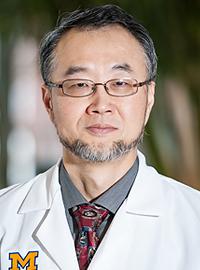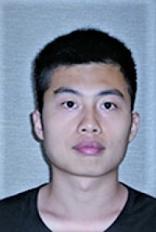Biography
Chang Kim is Professor of Pathology, Department of Pathology, and Kenneth and Judy Betz Family Endowed Professor for Food Allergy Research, Mary H. Weiser Food Allergy Center Michigan Medicine, University of Michigan. He received his BS degree in Molecular Biology at Korea Advanced Institute of Science and Technology (KAIST) in 1990 and MS degree in 1992. Then, he joined the biotech branch of LG Chem LTD, South Korea before his PhD education in the Department of Microbiology and Immunology, Indiana University School of Medicine and postdoctoral fellowship training at Stanford University. Before joining University of Michigan, he was the section head of Microbiology, Immunology, and Molecular Genetics at Purdue University and the program leader at the Purdue Institute of Inflammation, Immunology and Infectious Diseases. His research has been supported by grants from NIH, DOD, National Multiple Sclerosis Foundation, Michael J Fox Foundation, American Heart Association, Crohn's and Colitis Foundation, and Eli and Edythe Broad Foundation. He has served many journals as an associate editor or editorial board member. He was the president for the Association of Korean Immunologists in America (AKIA). He received numerous awards including Leukemia and Lymphoma Society Fellow and Special Fellow Awards, Sydney Kimmel Scholar Award, University Scholar Award, Research Excellence Award, Cancer Center Challenge Award, and Kenneth and Judy Betz Family Endowed Professorship. His research group studies the differentiation, migration and effector functions of immune cells and how these immune cells are regulated by vitamins, nuclear receptor ligands, and microbial metabolites.
Research Interests
- Cell trafficking and function in the hematolymphoid system. We study trafficking mechanisms of lymphocytes for development and effector functions. Special emphasis is on the roles of chemokine receptors and integrins in regulating the trafficking of various T cell populations (Th17, Th1, Tfh, Tfr, IL-10+ T cells, and FoxP3+ Tregs) and innate lymphoid cells (ILCs).
- Mucosal immunity, inflammation, and cancer. Balanced immunity is important for prevention of inflammation and cancer. We study the interactive relationships among immunity, inflammation and cancer development in the intestine. The cooperative roles of T cells, B cells, dendritic cells and innate lymphoid cells are studied.
- Host and microbial metabolites in regulating the immune system. Metabolites produced from dietary factors play important roles in the immune system. While we are interested in many different metabolites, we focus our study on the roles of short-chain fatty acids (SCFAs) and retinoic acids. Short-chain fatty acids are produced by gut commensal bacteria from dietary fibers. Retinoic acids are produced from vitamin A by host enzymes. These two different types of metabolites promote immunity and prevent inflammatory and allergic responses in the body through various receptors and target molecules.
Research Opportunities for Rotating Students
Vitamin A, immunity, and Cancer 2) Gut microbial metabolites in regulation of inflammation and allergy


